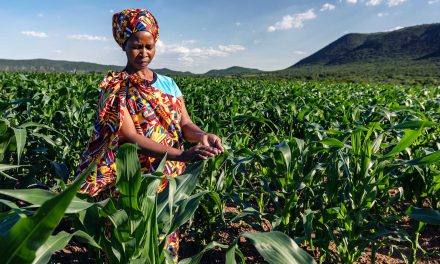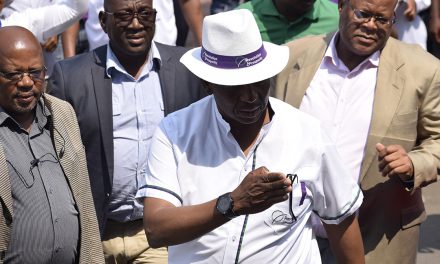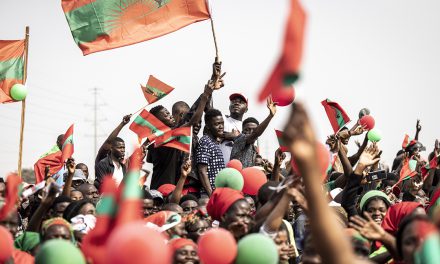South African politics is certainly more intriguing than fiction. Behind the drama, though, is the reality that twenty-seven years into our fragile democracy we are at a critical juncture. Critical junctures are major events that disrupt existing political and economic equilibria. Two recent and highly disruptive events have occurred in rapid succession that require examination.
First, Chief Justice Mogoeng Mogoeng has taken long leave from his preeminent position at the head of South Africa’s Constitutional Court. His term is due to end in September this year. The Presidency has not provided reasons for his departure, which comes at a moment of unprecedented political attack on the judiciary and raises questions about the timing of Mogoeng’s decision, though he is indeed entitled to take long leave.
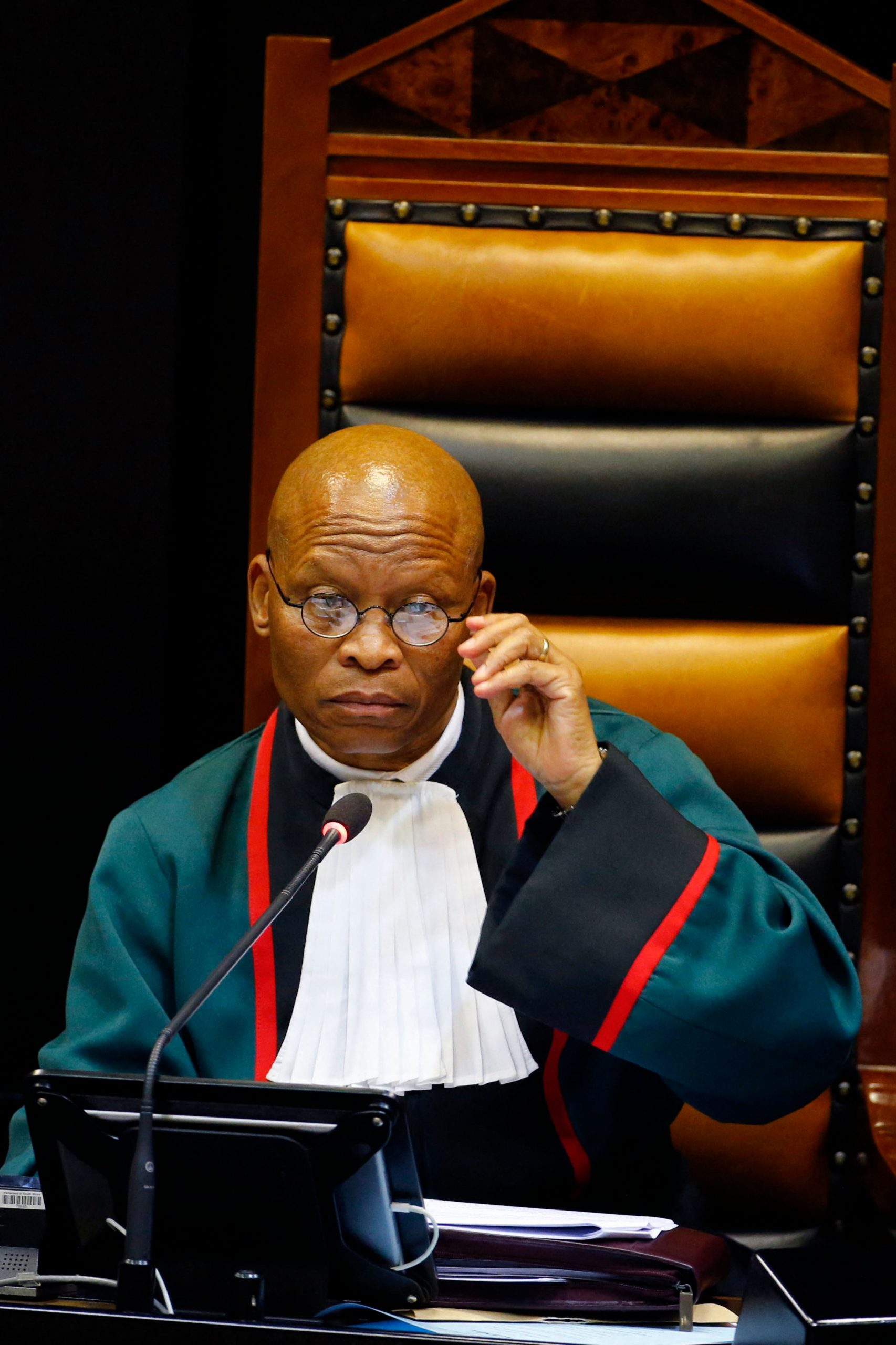
Chief Justice Mogoeng Mogoeng. Photo: Mike Hutchings/AFP
Former president Jacob Zuma, who has had a fractious relationship with a judiciary that has largely ruled against him without fear or favour, recently refused to appear before the Zondo Commission. He then ignored a Constitutional Court order to do so, for which an arrest warrant was subsequently issued. Zuma questioned South Africa’s constitutional foundation and defied Mogeong’s directive that Zuma submit a 15-page affidavit outlining a suitable sanction for being in contempt of court (for which the commission had asked for a two-year prison sentence). Instead of complying, Zuma wrote a lengthy letter complaining of judicial dictatorship.
Mogoeng has been silent since, and it’s unclear what his game is. Speculation, however, that this – and his leave decision – has to do with Mogoeng not wanting to get caught up in questions around Zuma’s arrest appear unfounded. Mogoeng was not on the court panel involved in the decision to issue the warrant.
Of concern, though, is that Mogoeng recently used hearings of the Judicial Service Commission to suggest that during 2016, while Pravin Gordhan was the finance minister, Gordhan had sought to influence him in favour of appointing a friend to the Supreme Court of Appeal. Gordhan has denied the allegations but they do not help South Africa’s reputation for increasingly blurry lines where there should be a clear separation. Nonetheless, Zuma’s attack on the judiciary appears to be baseless; the only public evidence for impropriety on behalf of judges is that Western Cape judge president John Hlophe had tried to persuade Constitutional Court justices to rule in favour of Zuma.
The story is of course far more nuanced than the picture of state capture and lawlessness (Zuma and his rent-hungry acolytes) against the judiciary. Jessie Duarte, the ANC’s deputy secretary-general, in a leaked recording, is alleged to have accused Deputy Chief Justice Raymond Zondo (of Zondo Commission fame) of having a prosecutorial, antagonistic attitude towards Zuma.
Second, and connected, is the peculiar tit-for-tat between Ace Magashule and President Cyril Ramaphosa. The ANC, at the highest level, has suspended Magashule because he is facing criminal charges for corruption. Never one for obeying orders – and closely connected to Zuma, who apparently advised Ace to defy the suspension – Ace responded by stating that he had in fact suspended the president. He also noted that Jessie Duarte (mentioned above) did not have the requisite authority, as his deputy within the party, to issue him with the suspension letter. But only the National Executive Committee or the National Working Committee of the ANC could take a decision of this nature, so it appears that Magashule is simply playing silly politics.
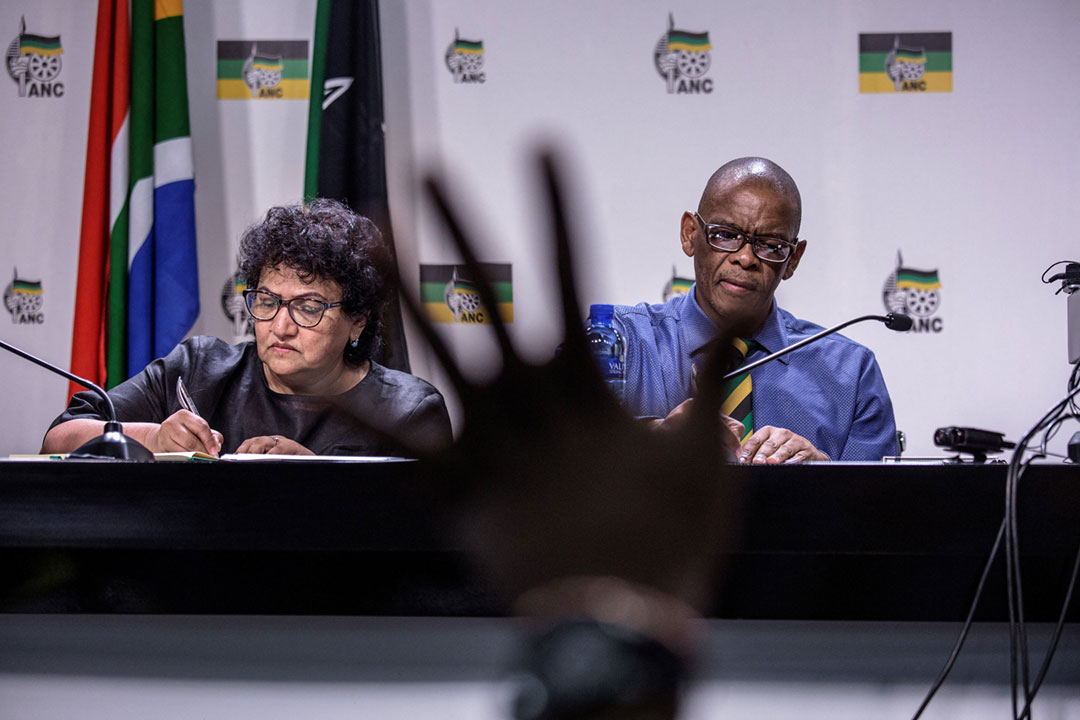
South African ruling Party African National Congress Secretary General Ace Magashule. Photo: Gianluigi Guercia/AFP
Either way, the fact that Duarte issued the letter, in the wake of her own comments allegedly attacking the judiciary, is significant. It suggests that in the interminable internal political machinations of the ruling party, even those aligned with the former president and Magashule, are now jumping ship. They appear to be hinging their lifeboats to Ramaphosa, including the rest of the ‘top six’, a number of whom do indeed possess their own ‘smallanyana skeletons’ and may soon face criminal charges.
These two events coalesce to potentially disrupt our political economy equilibrium. Political attacks on the judiciary are, as recently indicated by former president Thabo Mbeki, tantamount to abandoning ‘the principle that the constitution is the supreme law of the republic.’ He goes further, rightly, to point out that ‘the argument that a constitutional democracy is a threat to democracy itself and a subversion of the will of the people makes no sense and is not supported by any evidence.’
South Africa’s constitution acts as a source of constraining, independent external authority. Far from subverting the will of the governed, it prevents governance itself from becoming arbitrary and relativised. It is the foundation on which the formative principles of the rule of law and the separation of powers rests. In what has essentially become a relatively choiceless democracy with a dominant party, it is critical that a non-politicised bulwark – the constitutional court – should stand firm against an executive that – for ten years under former president Zuma – systematically looted the country. Without such a bulwark, the rule of law becomes a nonsense concept. Constraints against executive abuse have to be credible if South Africa is to escape the economic malaise that its politics have landed us in.
This is not mere opinion. The empirical evidence is compelling that countries with strong institutions – the social systems that motivate regular human behaviour – do far better in the long run than their unhinged, autocratic peers. In a 2019 article in the Journal of Political Economy, which requires far more global attention, scholars Acemoglu, Naidu, Restrepo and Robinson demonstrated with robust econometric modelling that “democracy does cause growth”. It is not – as some would have it – that growth creates the space for democracy to flourish. On the contrary, democracy – defined by a constitutional order that upholds the rule of law – creates the space for growth. These are mutually reinforcing structural dynamics.
The good news, of course, is that judge Sisi Khampepe has been appointed to take Mogoeng’s place. She brings fearless independence and forty years’ worth of experience to the role. That we can draw on this kind of talent is something we should be proud of as a nation. It is nonetheless critical that civil society band together to prevent a constitutional crisis and uphold the rule of law, preferably with high-profile elite lawbreakers in prison soon. Without it, the disruption to our already-fragile political economy equilibrium may prove irreversible.
Dr Ross Harvey is a natural resource economist and policy analyst, and he has been dealing with governance issues in various forms across this sector since 2007. He has a PhD in economics from the University of Cape Town, and his thesis research focused on the political economy of oil and institutional development in Angola and Nigeria. While completing his PhD, Ross worked as a senior researcher on extractive industries and wildlife governance at the South African Institute of International Affairs (SAIIA), and in May 2019 became an independent conservation consultant. Ross’s task at GGA is to establish a non-renewable natural resources project (extractive industries) to ensure that the industry becomes genuinely sustainable and contributes to Africa achieving the Sustainable Development Goals (SDGs). Ross was appointed Director of Research and Programmes at GGA in May 2020.



